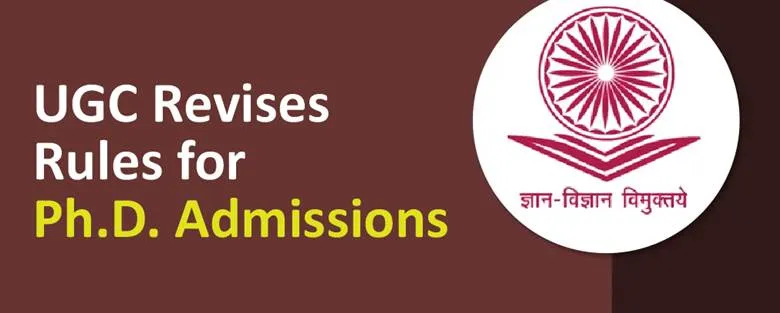Australian report proposes cutting university funds over antisemitism incidents
Australian Report Recommends Funding Cuts to Universities Over Antisemitism Incidents
1. A Controversial Proposal Sparks Academic Debate
A newly released Australian governmental report has ignited a heated debate by recommending that universities face automatic funding reductions if they fail to prevent or respond effectively to antisemitism incidents on campus. Heralded by proponents as a decisive step to protect Jewish students, the proposal has drawn swift criticism from academic leaders, who argue it threatens institutional autonomy and undermines deeper educational efforts. With rising reports of antisemitic harassment on university grounds, policymakers are pushing for swift action yet the fragmented response highlights broader tensions between accountability and academic freedom.
2. Understanding the Rationale Behind the Proposal
The report, commissioned by the federal education department, roots its logic in recent complaints from student advocacy groups. These reports allege that antisemitic slogans have appeared at protests, Jewish students feel overlooked in bias policies, and university leaderships often respond with vague statements instead of concrete action. By proposing financial penalties up to 5% of annual public grants the government seeks to incentivize rapid reforms. Supporters say it's a necessary measure to ensure campuses aren’t safe havens for intolerance, and to signal that silence or weak responses are no longer tolerated.
3. Universities Express Alarm Over Coercion
University administrators, however, are issuing formal objections. Academic Vice Chancellors argue that tying funding to social metrics creates perverse incentives institutions could prioritize risk aversion instead of nuanced discussions about complex global issues like the Israeli Palestinian conflict. There’s also concern that political pressures will dictate university policies, rather than those grounded in educational philosophy and open inquiry. Several universities warned that financial penalties could divert critical resources from teaching and research into compliance mechanisms, discouraging campus dialogue rather than fostering understanding.
4. Student Perspectives Safety, Speech, and Solidarity
Student groups are similarly split. Jewish campus organizations have voiced strong support for the report, noting that antisemitic incidents like graffiti, vitriolic online speech, and targeted harassment have caused genuine fear and disengagement. They argue that universities must be held to higher standards when student well being is at stake. Conversely, free expression advocates caution that punitive funding cuts may backfire, leading universities to avoid engaging with contentious subjects or fail to maintain open forums. They warn this could diminish essential student development and detract from Australia’s academic vibrancy.
5. International Precedents and Local Context
The Australian case is unfolding amidst a global reassessment of campus hate motivation policies. The UK, for instance, instituted statutory definitions of Islamophobia and antisemitism linked to funding reviews, while in Canada, universities have amended codes of conduct without financial penalties. Australia’s approach automatic funding cuts appears unprecedented. Supporters frame it as a stronger deterrent; critics argue it lacks nuance. These international models raise questions about effectiveness can reforms imposed from above achieve deeper cultural changes, or would partnerships and dialogue yield better outcomes?
6. Legal Implications and Governance Challenges
Some university legal counselors are sounding alarms. They question if federal funding powers can lawfully be used in this manner, noting that universities are autonomous corporate entities and that freedom of speech and academic independence are often enshrined in their founding statutes. There are concerns that arbitrarily triggered funding deductions could lead to costly legal battles. Meanwhile, university councils and academic senates are preparing by auditing existing antisemitism policies, bias response frameworks, and grievance reporting systems apparently in anticipation of future reporting and compliance demands.
7. Next Steps Policy Pilots or Heavy Handed Enforcement?
In response to the backlash, the government has hinted at pilot schemes and reforms rather than immediate legislation. Proposed alternatives include a phased approach requiring universities to report and remedy incidents within defined timeframes before penalties apply. Others suggest introducing third party oversight bodies, combining stakeholder representation from Jewish student groups, human rights experts, and civil liberties advocates to evaluate responses. The aim is to ensure accountability while preserving institutional discretion though it remains unclear how these mechanisms might be structured or if they can win sufficient political support.
8. Broader Reflections on Multicultural Campus Life
At its heart, this debate reflects tension in modern Australia universities as guardians of free inquiry versus campuses as safe environments for all students. With political fervor over cultural wars in education intensifying globally, the outcome in Australia could influence how other democracies approach diversity, inclusion, and speech boundaries. Will universities simply buckle under funding threats or will the process prompt genuine reflection, policy enhancement, and sustained cultural reform?
Final Thoughts
Australia’s report is neither a simple fix nor a symbolic gesture. It raises pressing questions about responsibility how universities should handle targeted hate, what protections students deserve, and what form genuine community safety takes. For our institutions of higher learning, this debate is much more than funding it’s a pivotal moment in clarifying their mission in a deeply pluralistic society. As lawmakers, educators, and students prepare for what comes next, the stakes are high the balance between institutional autonomy and moral accountability will have lasting impact on Australia's academic landscape and its global standing.






 Russia says ties with U.S. remain positive despite inconsistent Washington policies
Russia says ties with U.S. remain positive despite inconsistent Washington policies  Bregman returns for Red Sox
Bregman returns for Red Sox  Caden Pierce to redshirt
Caden Pierce to redshirt  AWS and Anthropic to unveil AI agent marketplace for developers and enterprises
AWS and Anthropic to unveil AI agent marketplace for developers and enterprises  Severe Thunderstorms Disrupt Life Across Northeast India
Severe Thunderstorms Disrupt Life Across Northeast India